In this guest blog post, an international group of researchers discusses a recent communication and education session that they convened at EGU’s 2015 General Assembly. If you are involved in any of these disciplines, we’d love to hear your opinions on how you think their practitioners are currently viewed, both within the geosciences and by the general public. We look forward to your comments.
The rationale behind this session was to give educators, science communicators and researchers the opportunity to discuss their communication practices in the geosciences. We had hoped that the session would be well attended, and we were delighted to have received a large number of abstracts, which meant that there we were allocated three oral time blocks and a poster session, as a result the session had pretty much an entire day devoted to it.
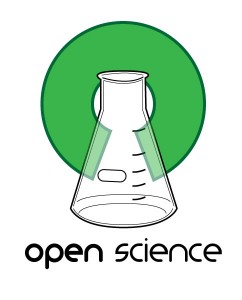
Open Science featured prominently in many of the talks in this session. (Photo Credit: Greg Emmerich)
In the first oral block of the session, science communication as a discipline was discussed. It was argued that our job as scientists is to gain knowledge and understanding about the complexity of nature. However, our work should not simply be seen as a stamp collecting exercise; in order to be truly beneficial to the rest of society, our findings must be communicated outside of the academic world as well. Science communication, in the form of outreach and public engagement (as well as widening participation and knowledge exchange) provides a general framework for this. Practically, scientists can engage in this communication in a variety of ways, for example as a scientific journalist via a British Science Association Media Fellowship. Another way that was discussed is through the creation of collaborative platforms that support scientists to develop their communication skills and share their results through Open Science, i.e. through the unrestricted access to all data, methods, techniques and scientific publications. The speakers also talked about how the communication of science is not a straightforward process, and how in order to be effective, and to have an impact on society, communication strategies need to be designed by effectively selecting the tools and languages that are suitable for the audience. It was also examined how in order to help further promote science communication as a worthwhile and sustainable discipline, the impact and effectiveness of communication strategies must be thoroughly evaluated.
The second oral block focused on education in the geosciences, and introduced many innovative examples of how to impart knowledge in an exciting, entertaining and enthusiastic manner. These could broadly be split into two categories: classroom experiments and fieldwork. In relation to the classroom experiments, there were many examples, including: the use of flour to observe rain drop sizes and distributions; implementing research in hydrology to promote space science among school children; and building engagement and enthusiasm among university students through context-rich and active learning. In all of these activities, what was clear was that the researchers had spent a lot of time working with both the students and the educators, to provide a tailored experience that was both informative and engaging. The fieldwork activities that were discussed ranged from promoting the teaching of Earth Sciences via a school bus (the GeoBus) to involving young scientists with Arctic expeditions and research projects working with local communities in Greenland. These later two projects made clear that engaging with local school children and communities in a genuine two-way dialogue is a mutually beneficial process, with researchers able to benefit from local knowledge and expertise. Overall, the audience was provided with a wide variety of possible geoscience-related teaching activities, and this set of talks highlighted the importance of fostering interest, devotion and enthusiasm amongst learners of all ages.
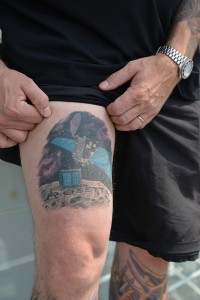
People found a variety of different ways to express their interest in the Rosetta mission! (Photo Credit: European Space Agency).
With the third oral block, the focus shifted from reflections on the discipline and student education to practical examples of reaching out to the general public to spark interest in the geosciences. The first part of the session saw a range of outreach and public engagement case studies, from communicating geological knowledge by means of a cookbook, to highlighting the challenges arising when communicating scientific risk and uncertainty to a society undergoing stress from natural hazards. A discussion of the Dutch weblog Climate Dialogue, and how it stimulated an open debate between leading climate scientists with controversial viewpoints, was followed by an active discussion about the field of science communication. During this discussion the participants agreed that geoscience communication should be seen as a subject/discipline in its own right, and suggested that there was a tendency among many scientists to underestimate the true demands involved in geoscience communication. The remainder of the session was given over to presentations relating to public engagement in the ESA Rosetta space mission. This included a discussion of how (online) competitions and social media can be used to raise general public interest, and to emotionally engage people from around the world; Rosetta’s highly popular outreach campaign stimulated people to write songs and even to ‘talk to it’ directly over social media channels.
Overall the session combined some engaging talks and posters with valuable and sincere audience engagement. We certainly had a lot of fun convening the session, and we are extremely grateful to all of the contributors for their hard work in making it happen. We are now already thinking about how to make the session even better for next year’s General Assembly, so watch this space!
Marie Charriere, Claudia Teutschbein, Thomas Grabs, and Sam Illingworth


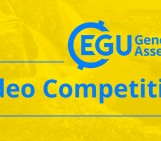
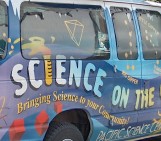
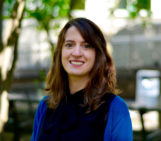
Samuel Illingworth
Hi,
There were indeed some great talks and posters about just that. I suggest that you check out the abstracts here:
http://meetingorganizer.copernicus.org/EGU2015/orals/17812 &
http://meetingorganizer.copernicus.org/EGU2015/posters/17812
In particular, this one should be of interest:
http://meetingorganizer.copernicus.org/EGU2015/EGU2015-10996-1.pdf
The slides for EGU posters and presentations will be uploaded shortly:
https://blogs.egu.eu/geolog/2015/05/06/upload-your-2015-general-assembly-presentation/
Many Thanks,
Sam
mtb
Are there any details regarding geoscience education at tertiary level? Always interested in new ideas.